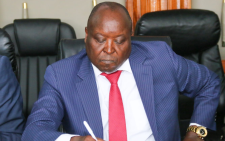Mucai Kunyiha
Covid-19 pandemic has presented enormous challenges for Kenya and hit the economy hard.
According to KNBS, the unemployment rate stood at 7.2 per cent in Q3 of 2020 compared to 5.3 per cent same period in 2019.
This reflects one of the most severe impacts of the pandemic, with many businesses having been forced to shut down temporarily and, in some cases, indefinitely, rendering thousands of Kenyans unemployed or facing severe pay cuts.
Worryingly, the economy went into recession for the first time in 12 years, with sectors such as tourism, hospitality, transport and logistics, education and manufacturing being most affected.
Given the pivotal role of manufacturing in economy, it is fair to say economic recovery is hinged on the recovery of the sector.
Amongst other contributions, manufacturing has always been a focal point for job creation, which is one of the main focus areas of President Kenyatta’s government.
The ongoing recovery environment is ideal to embrace the opportunities presented by new technologies, however, this can only happen on the back of an enabling and sustainable regulatory environment that promotes innovation.
Key to achieving this is Domestic Investment (DI) and Foreign Direct Investment (FDI), which are hinged on a predictable and stable policy and regulatory environment.
FDI is especially crucial for Kenya, given its crucial role in the wider East and Central African countries which are key trade partners, and as such, critical for sustained economic recovery in the region.
The most recent figures from the World Bank show Kenya’s FDI declined by over $300 million between 2018 and 2019. Kenya needs to ensure this downward trend does not continue.
The fact that multinational giants choose to maintain substantial presence and investment is testament that we have been doing something right.
But this track record is under threat.
Recent developments within the operating environment are placing increasing pressure on the companies’ ability to do business.
Excisable goods such as alcohol, tobacco and nicotine products stand out as some of the worst hit by regulatory overreach and a punitive excise regime.
The organisations will be taking note of Kenya’s forthcoming budget which targets to collect Sh1.7 trillion in tax.
One of the key ingredients for sustained economic recovery is consumer confidence. To re-build this amongst Kenyan consumers, a predictable, fair and balance tax regime is critical.
It not only supports business planning but also enables commercial decisions that are consumer-friendly, thereby spurring micro-commercial activity which is the backbone of our economy.
The opposite of this is already evident in the growing black-market in alcohol and tobacco, which not only impacts Government and industry revenues, but also puts consumers at risk.
The 2021/22 budget proposals must therefore deliver for businesses and consumers alike, including enabling inward investment into the country.
The Big Four Agenda aims to transform Kenya into a leader in cutting-edge manufacturing and an African hub for creative and entrepreneurial activity.
But recent regulatory developments in the tobacco industry for instance, suggest a clash between what is said and what it actually done.
BAT Kenya’s $25 million investment in a tobacco-free oral nicotine factory has ground to a halt as a result of regulatory and fiscal overreach, threatening the sustainability of the investment.
The move places Kenya out of sync with developed countries such as Sweden, South Africa and the UK, where this industry’s investment in these new products and technologies are accelerating in the face of shifting consumer consumption patterns.
We acknowledge and welcome the government’s pronouncement that Kenya is open for business.
But for manufacturers, this needs to translate into tangible action through enabling and sustainable business policy.
We have a unique opportunity to use innovation to catalyse growth, rebuild our economy and secure our future.
If Kenya is to succeed in a brave new world, the government must be open to new ideas and trends and embrace opportunities that our competitor nations would envy. — The writer is Chairman of Kenya Association of Manufacturers

















